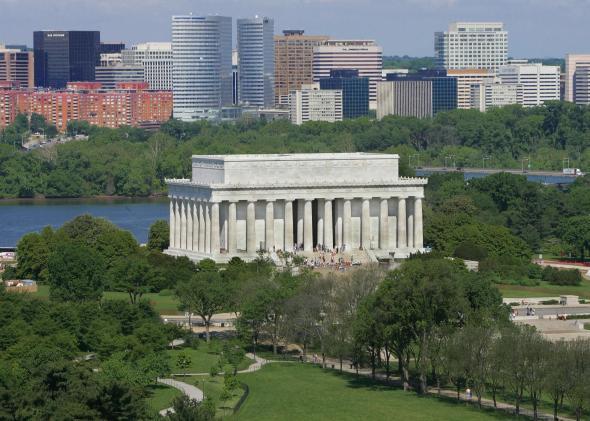Aaron Wiener, the Washington City Paper’s real-estate reporter, has a great piece about how the District of Columbia’s dream of becoming a high-tech startup hub never quite seems to work out. It’s not that successful companies are never founded in the District. It’s just that once they grow beyond an embryonic scale, they tend to jump ship for the Bay Area or New York where they can be part of deeper startup ecosystems with more venture capital and more tech workers. Some companies do stay, but they’re normally firms that do a lot of business with the government:
Rather than becoming a second Silicon Valley, the District is shaping up as more of a Silicon Hill, with a tech scene built up around the activity of the federal government. And while this growing sector holds economic promise for the city, it also risks pushing D.C. deeper into the rut from which [Mayor Vince] Gray and others hoped it would rescue the District: dependence on the federal government.
What surprised me about the piece is that Wiener ended up leaving out the real-estate angle!
But here’s the deal. Washington, D.C., is an expensive place to live and it’s an expensive place to rent an office. That makes it a doubly expensive place to run a business. First, thanks to the high price of commercial real estate you have a lot of overhead. Second, thanks to the high cost of housing to give your workforce high real salaries requires very high nominal salaries.
Now lots of firms do business here anyway. It’s expensive, but it’s worth it if you want access to our unique regional specialization in access to the federal government. But there’s no particular reason to pay these high costs if your business doesn’t have some relationship to politics, to lobbying, to government contracting, or to some other D.C.-centric thing. It’s not that businesses can’t succeed in expensive places. Silicon Valley isn’t cheap and neither is New York. But businesses need a reason to put up with high costs. The reason to be in Silicon Valley is to access the deep and rich high-tech ecosystem. If that ecosystem isn’t beneficial to you, it makes sense to go elsewhere. The reason to be in D.C. is to be plugged in with the federal government. If that ecosystem isn’t beneficial to you, it makes sense to go elsewhere.
But what if D.C. weren’t so expensive? What if D.C. unleashed the power of looser zoning in the high demand areas downtown and west of Rock Creek Park? You’d still see some businesses decamping for the Valley or New York or elsewhere. The city where the federal government is located is always going to have an economic bias in that direction. But with a much-reduced D.C. price premium, the selection pressure on firms to either specialize in federal stuff or head elsewhere would be much reduced. Washington wouldn’t become Silicon Valley simply because nobody can become Silicon Valley. But we’d be more like Minneapolis or Austin, Texas, or Charlotte, N.C., or any other American city with a highly educated workforce and a real-estate market that’s capable of sustaining a range of businesses. But as long as office space downtown stays scarce, only firms that really truly have some reason to be close to Capitol Hill are going to want to bid for it.
